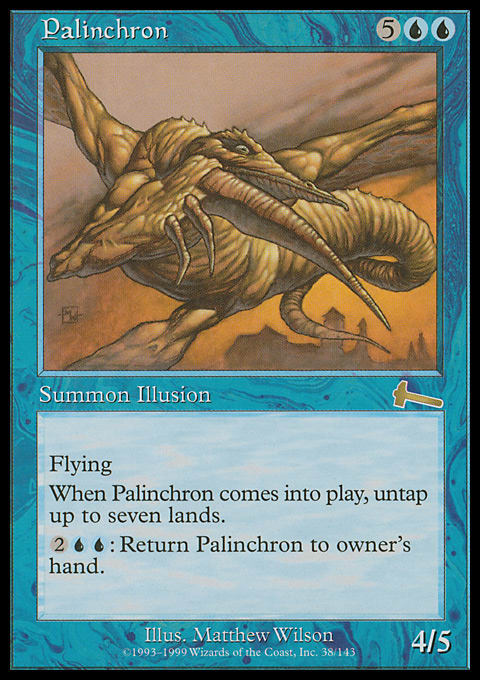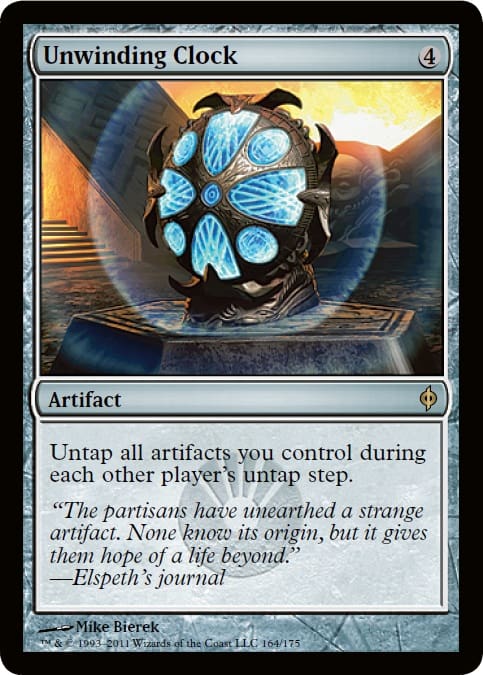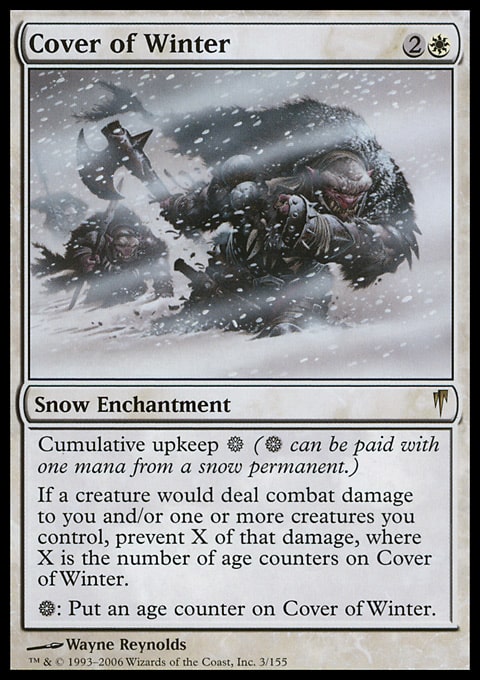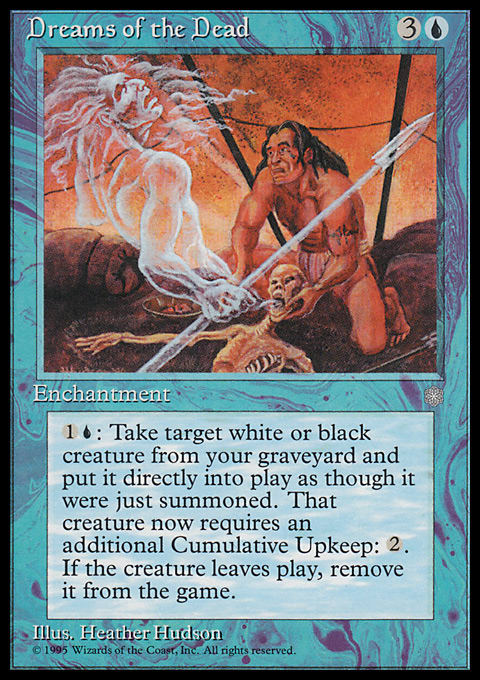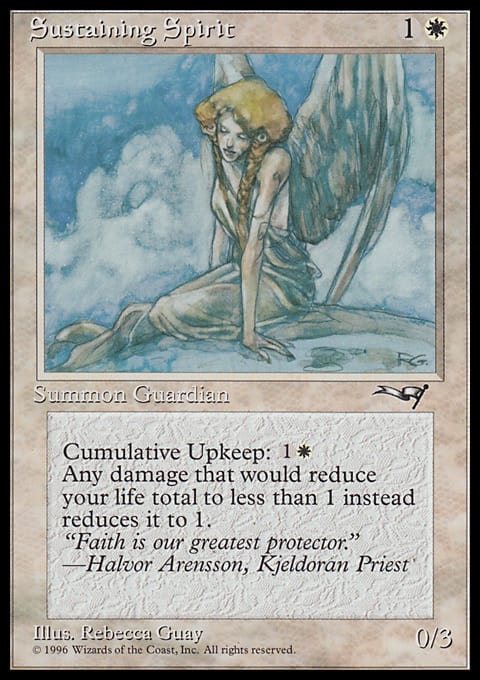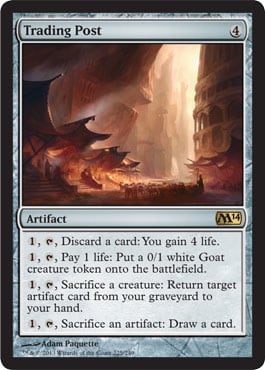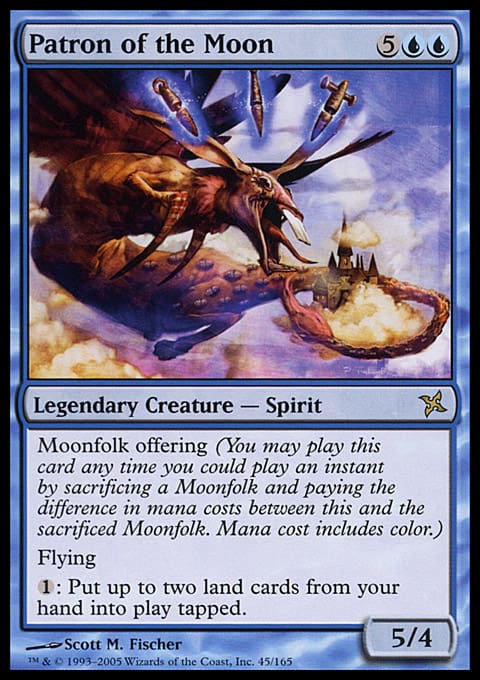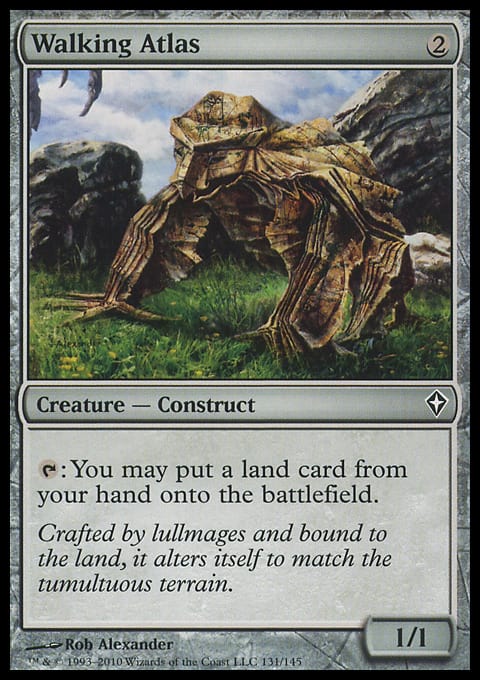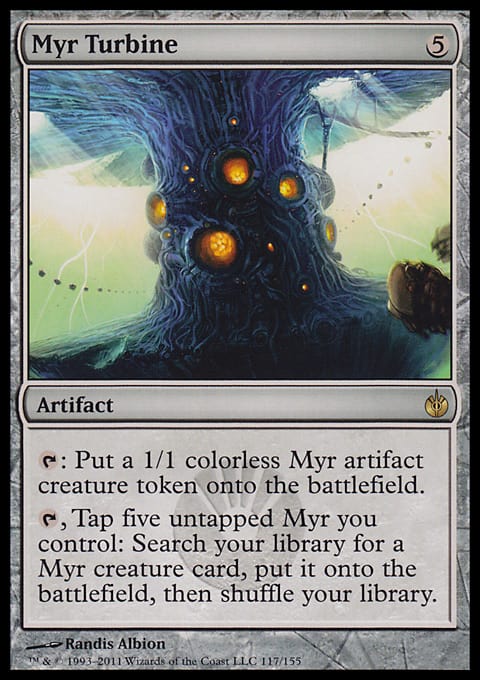A few weeks ago, I was listening to Episode 48 of JudgeCast (a great podcast about rules, policy, and being a judge), and around the nine-minute mark, I came across this wonderful exchange:
Jess Dunks: You’re kidding, right?
CJ Shrader: No, that’s a sweet move.
Bryan Prillaman: So, you’re going Chronatog as your tech?

So . . . We’re going to endlessly detain stuff? Sounds like a great deck to explore for Azorius week! Now, while I’m not sure Bryan’s suggestion of Chronatog is exactly the type of card I want to be playing with, Time Spiral’s mana-artifact rendition of the time-nomming ’Tog is actually a great fit. Knowing that we’ll be playing Chronatog Totem and some number of detain effects and that our primary game plan is to skip all of our own turns while still surviving and winning somehow, let’s take a look at the elements of a turn we’ll need to replace and what cards we can use to replace them.
Untap Step
Untapping is the first thing you do in a turn (unless you’re playing with phasing!), and it’s a pretty important step. One thing I quickly learned while researching how to build this deck is that there’s far more design space for a deck that seeks to skip all of its turns than I would have initially guessed. As I go through some of these sections, you’ll see how diverse the options are.
To start, the obvious card choices for replacing the untap step are Seedborn Muse and Awakening. However, as this is an Azorius deck, let’s see what else we can come up with. Pairing a Deadeye Navigator with Peregrine Drake or Palinchron will give us infinite mana regardless of whose turn it is, but once we have infinite mana, things become much less interesting; let’s look somewhere else.
For a while, I had a rough draft of the deck with an Isochron Scepter package, and the primary impetus for that was Momentary Blink. Using Momentary Blink with one of our Urza’s Saga favorites instead of the Avacyn Restored soulbond Spirit would give us a fairer amount of mana. The Scepter also worked quite well in multiplayer with the card I selected to reproduce our untap step: Unwinding Clock.
Note that I didn’t go with Isochron Scepter or Momentary Blink because that version of the deck had too many disparate pieces it wanted to pull together, but Unwinding Clock will reward us for playing in multiplayer games. We may not have an untap step of our own, but the more players there are, the more untap steps we can benefit from.
To make our lands tick with the Clock, let’s include four Seat of the Synod, four Ancient Den, and four Darksteel Citadel.
Upkeep Step
Upkeeps aren’t usually necessary, and for this deck, that’s no exception. Note, however, that the lack of an upkeep can be a distinct advantage. I toyed with including such cards as Cover of Winter, Dreams of the Dead, and Sustaining Spirit. These cards with cumulative upkeep become much more exciting when you never actually have to pay their costs. Consider returning a Mulldrifter from your graveyard using Dreams of the Dead, drawing two cards, then using Isochron Scepter to cast Momentary Blink targeting the Elemental to draw two more cards. The Blink effect will loophole around the enchantment’s exile clause, so the Mulldrifter will stick around so you can sacrifice it to Trading Post, ready to be reanimated again. Most of those cards were cut from the final list, but it’s something to think about.
Cover of Winter seems awesome; I love any excuse to play with snow lands, though I don’t have enough for an actual deck. The idea of conjuring a massive snowstorm so powerful that you’re impossible to deal damage to and so powerful that you can’t sustain it—but don’t have to anymore, thanks to some handy time-eating—is pretty exciting. The necessity for artifact lands makes room tough to find for snow lands, but feel free to give it a shot if the idea intrigues you.
Draw Step
Like the untap step, having to skip our draw step is pretty harsh, but we can work around it. One fun way to do that is with Psychic Possession. It’s not great while setting up in the early game, but having one copy in the deck can help us stay fueled once we start skipping all our turns.
Now that we’re playing Unwinding Clock, we can expect to be playing a lot of artifacts. Dreamstone Hedron will make us a lot of mana and draw us a nice cache of cards when we need it to, and Mind's Eye can more than make up for a lack of a draw step, again thriving in a multiplayer setting.
Finally, Trading Post requires that we pay for every card we take, but it gives us some other powerful options. We can return artifacts our opponents destroyed, make chump-blocking Goats, and pitch extra cards for life. Untapping during each opponent’s turn means we’ll enjoy plenty of exchanges in the market.
Main Phase
Two primary things happen during the main phase: playing a land and casting sorcery-speed spells. One of those is easy to replicate. With Leyline of Anticipation, all of our spells have flash. That means everyone’s turns can act as our main phase—even while stuff is on the stack! Another good option here is Vedalken Orrery. It has the same effect as the Leyline, but since we’re already playing blue and the Leyline has a free mode (if it’s in our starting seven), it seems to be the better bet.
The land-drop conundrum is a little trickier. Green could alleviate the problem, but there are other ways to put lands onto the battlefield. The initial draft of the deck had Patron of the Moon. However, it’s a bit pricey at 6 mana, and its large body wasn’t particularly useful. The list also had four copies of Soratami Mindsweeper, both as the win condition and as an offering to play the Patron cheaply.
However, there’s a way to put lands onto the battlefield without spending 6 mana, and that’s Worldwake’s treasure, the very first nonartifact colorless creature: Walking Atlas. (Yeah, yeah, I know—its lack of the artifact type was an error, and the card was erratad upon release.) (Honorable mentions go to Ancient Kavu, Blazing Blade Askari, and Ghostflame Sliver.) With this little guy and Unwinding Clock, we can play a land on each of our opponents’ turns as long as we have one to put down, and with Mind's Eye and/or Psychic Possession, we could have a lot of lands. This guy is also eligible to be traded in for two different exchanges at a Trading Post.
There’s one final thing that main phases are good for, and that’s activating planeswalkers’ abilities. Unfortunately, planeswalkers just may not be a great fit for this deck.
Combat Phase
Nah. We don’t mind skipping this one.
Normal Magic has attacking and blocking, but we’re playing Azorius. We just want to detain stuff, protect ourselves, and then somehow emerge victorious. The second-string win condition is milling, so let’s go with that.
However, we do have our opponents’ combat phases to worry about. That’s where the inception of this deck comes in. The plan is to detain stuff and keep it that way. New Prahv Guildmage lets us pay ![]()
![]()
![]() to detain a nonland permanent, so we can keep things from attacking us or magically lock away opposing permanents with pesky activated abilities. Part of the Momentary Blink package included Azorius Justiciar to double-detain each turn.
to detain a nonland permanent, so we can keep things from attacking us or magically lock away opposing permanents with pesky activated abilities. Part of the Momentary Blink package included Azorius Justiciar to double-detain each turn.
For a while, while deck-building, I avoided Chronomantic Escape. What good was detaining if this recurring and/or unending sorcery just did all the work? (Glacial Chasm is just easy mode.) In the end, I’m happy to include the Guildmage, but I think he could use the help. Plus, the sorcery plays along with the time theme. Casting an Escape and then skipping the rest of our turns for the rest of the game I think would feel pretty clever.
End Phase
A single Sands of Delirium can go a long way toward ending a game once we get to untap on each other player’s turn. The slower version of the Sands is Return to Ravnica’s new, innocuous Codex Shredder. Milling one card per turn can get some work done, but this card has the added benefit of returning any missing piece from our graveyard. And once it’s done its job, a Trading Post can put it right back to work.
I’ve also included Myr Turbine. This inclusion was primarily for a steady stream of artifacts and creatures (two in one!) for Trading Post activations; however, the card gives us the additional option of creating a massive Myr army on our opponents’ turns. Things have to go exactly right, but if they do, you can ambush your foes by actually taking your turn! Simply choose not to activate the Chronatog Totem that turn, untap, enjoy your upkeep, savor your long-lost draw step, caress your main phase (too far?), and attack with an army!
The Turbine’s second superpower (a.k.a. activated ability) might not be too useful, though I have to consider Mirror Entity. It’s a Myr, so the Turbine can fetch it, and it can turn your 1/1s you’ve been amassing into massive beaters. The changeling is tangential to the primary game plan of milling, so it’s kind of awkward, but the little guy’s so cute, and I couldn’t say “no.”
Finally, note that the deck can win without a single mill card. Simply by skipping your turns and staying alive—as long as you’re not drawing as many cards as any opponent—you can win the game. If no one has artifact destruction, graveyard reshuffling, or alternate win conditions of his or her own, all you have to do is skip every one of your turns for the rest of the game. In that way, Unwinding Clock, Chronatog Totem, and Chronomantic Escape create an extremely-non-instant-win combo.
Let’s add in a few more useful cards—Enlightened Tutor, Azorius Signet, Magosi, the Waterveil, Academy Ruins, Azorius Guildgate, Island, Plains—and call it a deck.
"Unwinding in New Prahv"
- Creatures (7)
- 1 Mirror Entity
- 4 New Prahv Guildmage
- 2 Walking Atlas
- Spells (29)
- 2 Enlightened Tutor
- 2 Chronomantic Escape
- 1 Psychic Possession
- 4 Leyline of Anticipation
- 1 Codex Shredder
- 1 Dreamstone Hedron
- 1 Mind's Eye
- 1 Sands of Delirium
- 2 Myr Turbine
- 2 Trading Post
- 4 Azorius Signet
- 4 Chronatog Totem
- 4 Unwinding Clock
- Lands (24)
- 3 Island
- 3 Plains
- 1 Magosi, the Waterveil
- 4 Azorius Guildgate
- 1 Academy Ruins
- 4 Ancient Den
- 4 Darksteel Citadel
- 4 Seat of the Synod
Your numberage may vary. And I definitely think a version focused more on cumulative upkeep could be pretty brutal. Just consider skipping all your turns while controlling a Ritual of Subdual and a Glacial Chasm. Anyway . . . Until next time, I’m Andrew saying, “Your turn again.”
Andrew Wilson
fissionessence at hotmail dot com














